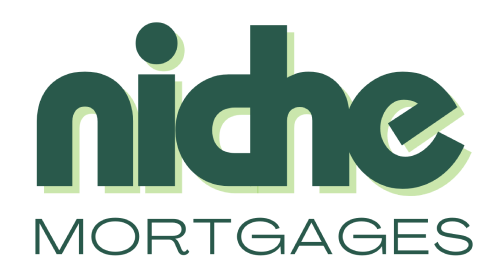Choosing the right small business mortgage is a critical decision that can significantly impact your business’s growth and financial stability. With various mortgage options available, understanding your specific needs and evaluating your options is essential to make an informed decision. This guide will walk you through the key factors to consider when selecting the best small business mortgage for your needs.
Understand Your Business Goals
Before exploring mortgage options, take time to clarify your business objectives. Consider questions like:
- Are you purchasing a property for long-term use or investment?
- Do you plan to expand your operations or renovate an existing space?
- How will owning property align with your overall business strategy?
Your goals will shape the type of mortgage you choose. For example, if you’re looking to expand your operations, a long-term mortgage with predictable payments might be best. If you’re flipping commercial properties, a short-term option may be more suitable.
Evaluate Your Financial Health
Your business’s financial stability will heavily influence the type of mortgage you qualify for. Lenders assess factors such as:
- Revenue and Profit Margins: Consistent revenue streams make you a more attractive borrower.
- Credit History: A strong credit profile can help you secure better terms and lower interest rates.
- Debt-to-Income Ratio (DTI): A lower DTI indicates that your business can comfortably manage additional debt.
If your credit or financials are not ideal, consider alternative options like private lenders, which may offer more flexibility.
Explore the Types of Small Business Mortgages
Understanding the different types of mortgages available will help you choose the one that best fits your needs. Common options include:
- Fixed-Rate Mortgages: Offer stability with consistent monthly payments over the life of the loan. Ideal for long-term investments.
- Variable-Rate Mortgages: Feature fluctuating interest rates that may start lower but can increase over time. Suitable for businesses comfortable with some risk.
- Bridge Loans: Short-term financing to cover gaps, such as buying a property before selling another.
- Small Business Mortgages: Backed by government programs, these loans often provide favorable terms for small businesses.
The type of mortgage you choose should align with your financial capacity and business plans.
Determine the Loan Amount You Need
Accurately calculating the loan amount you need is essential to avoid overborrowing or falling short of funds. Begin by considering the total cost of the property or renovation, including associated expenses like taxes, legal fees, and appraisals. Additionally, account for future maintenance costs to ensure you are financially prepared. Using a mortgage calculator can help you estimate your monthly payments and confirm that the loan amount aligns with your budget.
Compare Lenders and Loan Terms
Not all lenders offer the same terms, so it’s crucial to explore your options thoroughly. Focus on factors like interest rates, as lower rates can significantly reduce your overall costs. Look into repayment terms and decide whether shorter terms with higher payments or longer terms with lower monthly payments suit your financial situation. It’s also important to check for prepayment penalties, especially if you plan to pay off the loan early. If traditional lenders impose strict requirements, private lenders might offer more flexibility. Learn more about commercial mortgage loans to explore tailored options for your needs.
Consider Your Down Payment
The size of your down payment has a significant impact on your mortgage terms and monthly payments. A larger down payment often results in reduced monthly payments, lower interest rates, and the potential to eliminate the need for additional insurance, such as private mortgage insurance (PMI). To secure better loan terms, aim to save at least 20% of the property’s value for your down payment.
Factor in Additional Costs
When planning your mortgage, consider the additional costs beyond the loan itself. These can include property taxes, insurance, and ongoing maintenance and repair expenses. Closing costs, such as appraisal fees and legal charges, should also be factored into your budget. Understanding the full scope of these expenses will help you avoid financial surprises and create a more accurate financial plan.
Ready to Secure the Right Small Business Mortgage?
To determine the right small business mortgage, start by understanding your business goals and evaluating your financial health. Explore different mortgage types, calculate your loan needs, and compare lenders to find the best terms. Consider working with a mortgage broker and planning for additional costs to make an informed decision.
Finding the perfect mortgage for your business doesn’t have to be complicated. Contact Niche Mortgages today to explore tailored solutions and get expert guidance to meet your business’s unique needs. Let’s build your success together!
About the Author

Jonathan Yien
Jonathan Yien is a seasoned mortgage broker at DLC Clear Trust Mortgages with a rich background in financial advising from his time at TD Canada Trust. He is dedicated to helping clients achieve their financial and homeownership goals.

